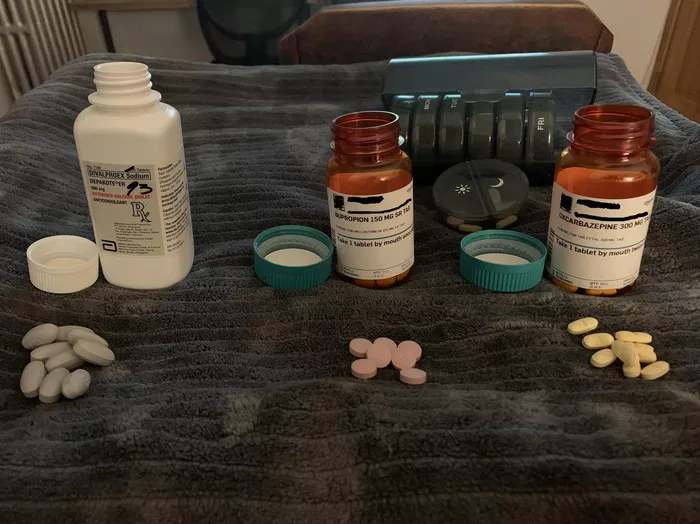A recent systematic review presented at the European Obesity Conference (ECO) in Málaga, Spain, reveals that GLP-1 receptor agonists (GLP-1 RAs), such as liraglutide and semaglutide, can significantly reduce weight and improve blood sugar control in adults with severe mental disorders. These medications also positively affect the emotional well-being, happiness, and quality of life in both individuals with and without mental health conditions.
Research indicates that GLP-1 RAs, when used by adults with mental health conditions, are just as effective and safe as they are in the general population. They can significantly reduce weight gain associated with psychiatric medications, improve blood sugar control, and protect heart metabolic health. This is particularly crucial for individuals with severe mental disorders, as they are three times more likely to suffer from obesity compared to the general population.
Impact of Mental Illness on Weight Gain and Metabolic Disorders
Mental illness significantly increases the risk of weight gain and metabolic disorders like obesity and type 2 diabetes. It’s estimated that about 60% of patients with severe mental illness are overweight or obese. Additionally, weight gain is a common side effect of many psychiatric medications, including antidepressants and antipsychotics, which are essential for managing conditions such as schizophrenia and major depressive disorder to prevent symptom relapse.
GLP-1 receptor agonists, initially developed for diabetes treatment, mimic the action of the hormone glucagon-like peptide-1 (GLP-1), which stimulates insulin secretion and lowers blood sugar. Recently, these drugs have become effective treatments for obesity, slowing digestion, increasing feelings of fullness, and reducing hunger.
Despite their promise, there has been limited evidence regarding the effects of GLP-1 RAs in individuals with both obesity and mental health disorders. There were concerns about these medications potentially increasing suicide risk or self-harm.
Study Overview and Findings
In order to gain a deeper understanding, Swiss researchers systematically reviewed clinical trials and case studies conducted from January 1, 2010, to August 31, 2024, that examined the safety of GLP-1 RAs and their effects on metabolic disorders induced by psychiatric drugs, such as obesity and type 2 diabetes, as well as their impact on mental health outcomes.
The study analyzed data from 36 studies across 19 countries, involving 25,677 adults aged 18 and older. Eighteen of these studies focused on the impact of GLP-1 RAs on weight loss, blood sugar control, and psychiatric outcomes in adults with severe mental disorders, including major depressive disorder, bipolar disorder, schizophrenia spectrum disorders, and alcohol use disorder. The remaining 18 studies examined the effects of GLP-1 RAs on emotional health and quality of life in overweight or obese adults without severe mental health conditions.
Four different GLP-1 RAs were studied: liraglutide (Victoza), semaglutide (Ozempic or Wegovy), exenatide (Byetta or Bydureon), and dulaglutide (Trulicity).
Weight Loss and Blood Sugar Control Benefits
The analysis found that GLP-1 RA treatment significantly reduced weight and improved blood sugar control in adults with mental health conditions taking psychiatric medications.
In one randomized trial, patients with schizophrenia or schizoaffective disorder who took liraglutide (up to 3 mg daily) experienced significant weight loss. After six months, they lost up to 5.3 kg compared to those taking a placebo, and their blood sugar levels (HbA1c) dropped by 3.6 mmol/mol. In another study, patients taking semaglutide (2.4 mg weekly) lost up to 15.7% of their body weight after 68 weeks.
No Increased Suicide Risk
It is particularly noteworthy that GLP-1 RAs did not appear to increase the risk of suicide, self-harm, or deterioration of mental health. For example, analysis of four studies examining suicide risk in adults with bipolar disorder, major depressive disorder, or no mental illness found no significant increase in suicidal ideation with liraglutide. Additional studies of patients with alcohol use disorder taking exenatide or bipolar disorder patients on liraglutide also showed no significant difference in suicidal behavior compared to placebo.
Dr. Sigrid Breit, lead author, noted, “Until we have more robust evidence, patients on GLP-1 RAs, especially those with mental health conditions, should be closely monitored.”
Positive Effects on Mental Health
The analysis further found that GLP-1 RAs improved mental health outcomes for both individuals with and without mental disorders. Five studies showed that GLP-1 RAs were safe and led to improvements in mental health outcomes and quality of life in patients with schizophrenia, major depressive disorder, and bipolar disorder. In individuals without mental disorders, GLP-1 RAs showed superior improvements in emotional health and overall quality of life compared to insulin and other antidiabetic drugs.
For example, a randomized trial involving type 2 diabetes patients showed that liraglutide (1.2 or 1.8 mg) significantly improved mood health and general health perception compared to glimepiride (8 mg daily).
Dr. Breit explained, “GLP-1 RAs may have antidepressant and anxiolytic effects due to their anti-inflammatory and antioxidant properties, which help reduce neuroinflammation.”
She added, “This study provides much-needed evidence supporting the safe use of GLP-1 RAs to alleviate the obesity burden in mental health patients. However, we still need more data from large-scale randomized trials, long-term treatment, and follow-up to assess the long-term efficacy of GLP-1 RAs and whether they could directly treat mental disorders.”
Conclusion
The findings suggest that GLP-1 RAs are a promising treatment for managing both the physical and emotional health challenges faced by individuals with severe mental disorders. Although additional studies are necessary, these medications may offer a novel approach to addressing the complex interplay of mental health, obesity, and metabolic conditions.
Related Topics
































